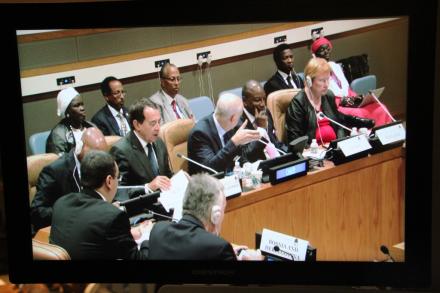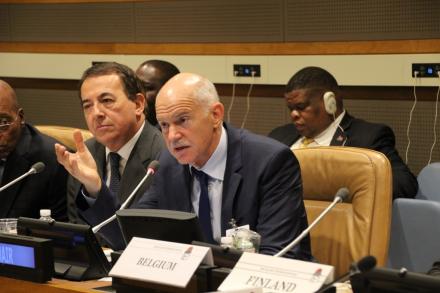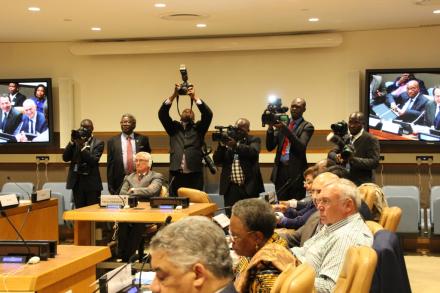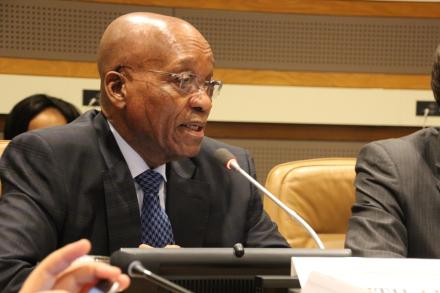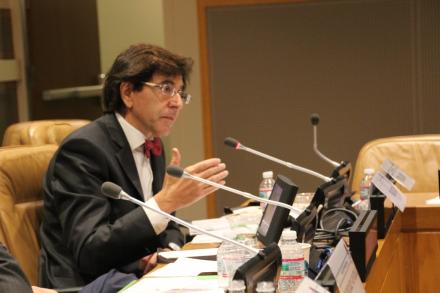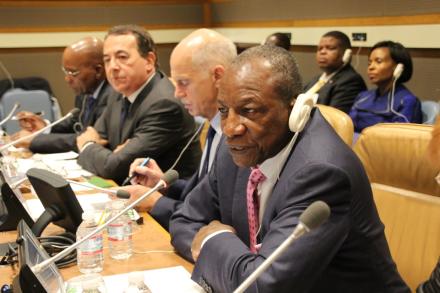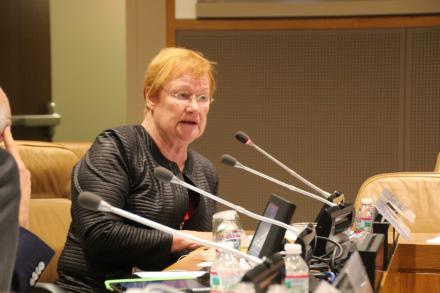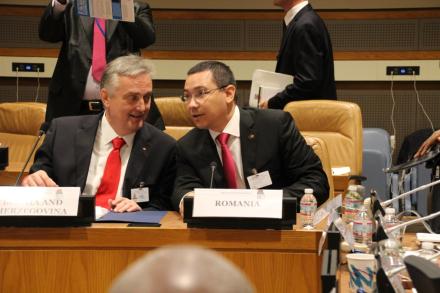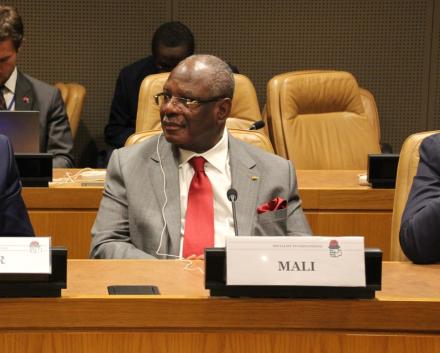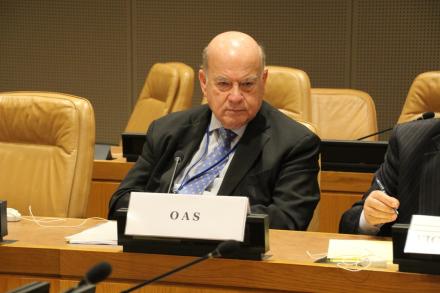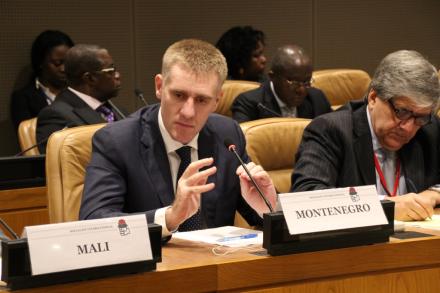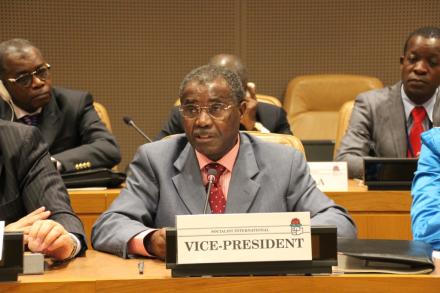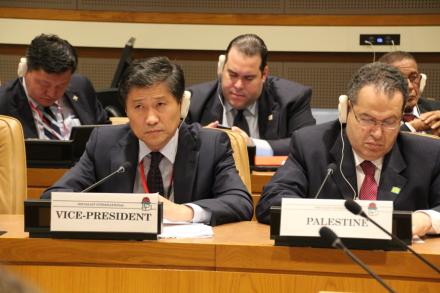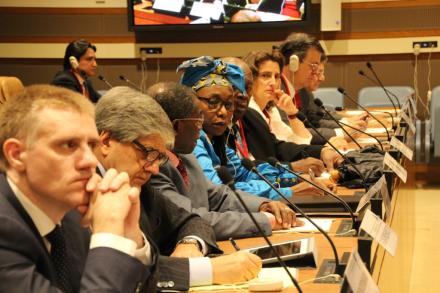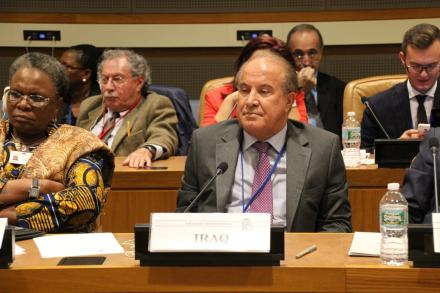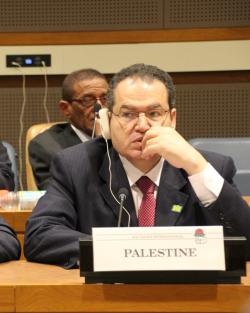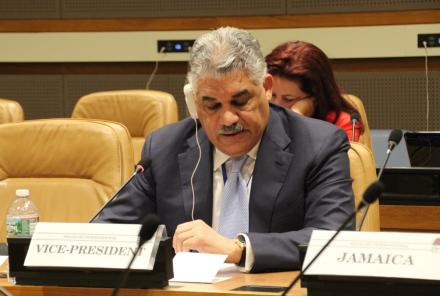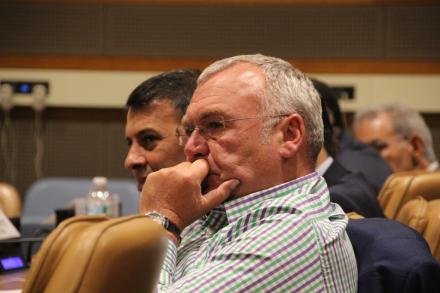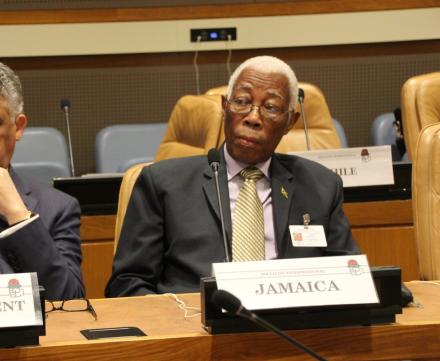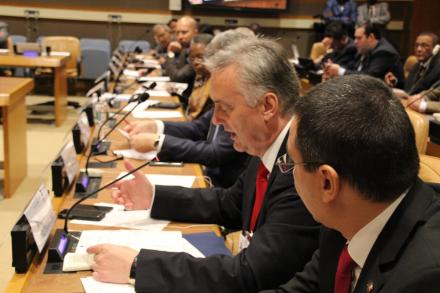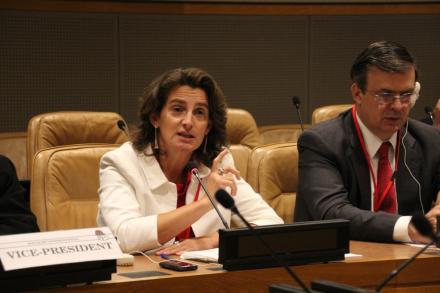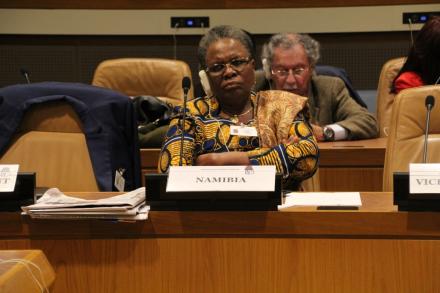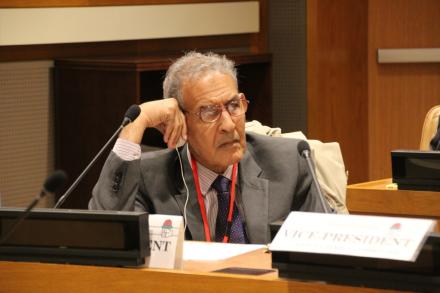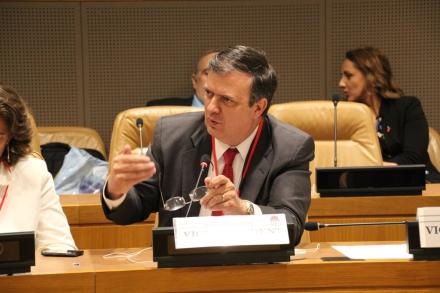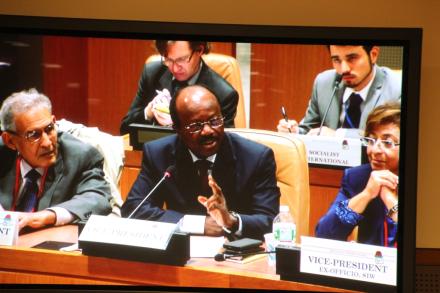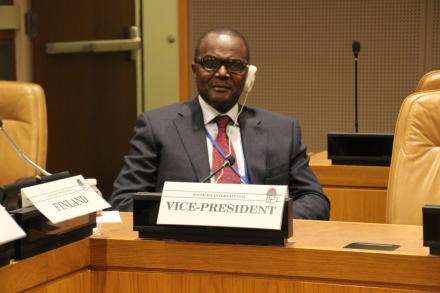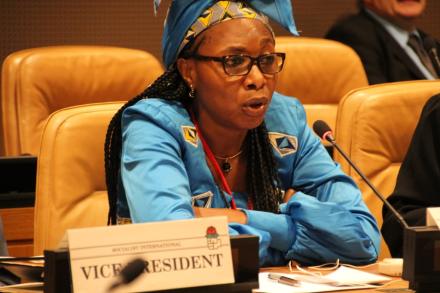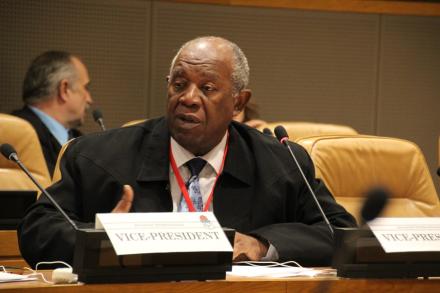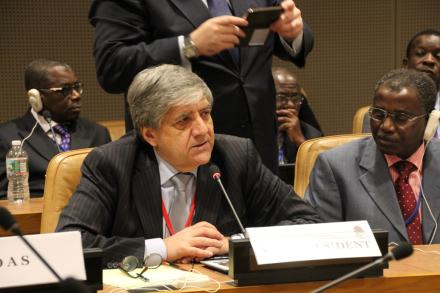Presidium
Meeting of the SI Presidium and Heads of State and Government, United Nations, New York
25 September 2014
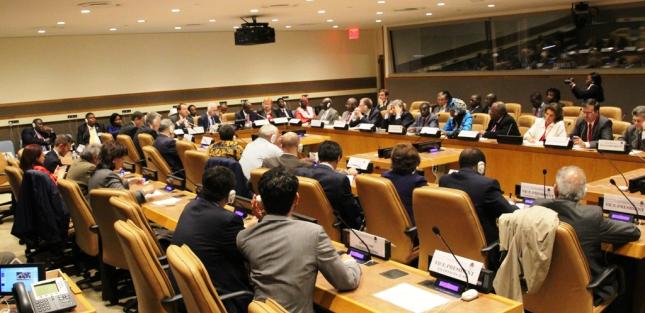
Latifa Perry
On the occasion of the 69th session of the United Nations General Assembly, members of the Presidium of the Socialist International and Heads of State and Government gathered for a meeting on 25 September 2014 at the UN headquarters. The main themes of the discussions were the contribution of our movement to peace and international security in face of today’s open conflicts; our agenda on equality in the global economy and the establishment of an SI Commission on this theme; and defining a way forward to secure the 2015 global agreements on climate change.
The Heads of State and Government and other officials present included HE President Alpha Condé (Guinea), HE President Ibrahim Boubacar Keita (Mali), HE President Mahamadou Issoufou (Niger, SI Honorary President), HE President Jacob Zuma (South Africa, SI Vice-President), Prime Minister Elio Di Rupo (Belgium, SI Vice-President), Prime Minister Victor Ponta (Romania, SI Vice-President), former President of Finland, Tarja Halonen (SI Honorary President), José Miguel Insulza (Secretary General of the Organization of American States), Zlatko Lagumdžija (Deputy Chairman of the Council of Ministers and Minister of Foreign Affairs, Bosnia & Herzegovina), Igor Lukši? (Deputy Prime Minister and Minister of Foreign Affairs, Montenegro), Arnold Nicholson (Minister of Foreign Affairs and Foreign Trade, Jamaica), Netumbo Nandi-Ndaitwah (Minister of Foreign Affairs, Namibia), Maite Nkoana-Mashabane (Minister of International Relations and Cooperation, South Africa), Ahmad Bamarni (Government of Iraq, Responsible for international organisations) and Majdi Khaldi (Representative of President Abbas, Palestine).
The meeting was chaired by SI President George Papandreou, with participating members of the Presidium comprising SI Secretary General Luis Ayala, and SI Vice-Presidents Victor Benoit (Haiti), Ahmed Ould Daddah (Mauritania), Ousmane Tanor Dieng (Senegal), Marcelo Ebrard Casaubón (Mexico PRD), Emmanuel Golou (Benin), Alfred Gusenbauer (former Chancellor of Austria), Chantal Kambiwa (Cameroon), Mario Nalpatian (Armenia), Julião Mateus Paulo (Angola), Henry Ramos (Venezuela), Sukhbaatar Batbold (former Prime Minister of Mongolia), Miguel Vargas Maldonado (Dominican Republic), and from the SI fraternal organisations, Ouafa Hajji (SIW President) and Felipe Jeldres (IUSY President).
The need for decisive action by the international community in the face of open conflicts emerged as a strong message during discussions on the first theme of the meeting. The threat posed by terrorist organisations such as ISIS, Boko Haram or Al Qaeda affects not only the countries in which they are based and operate, but also security on a global level. Participants heard how instability in Libya, for example, had led to deterioration in security in Niger and Mali. The exchanges between participants on the most recent developments in Iraq and Syria reflected a strong and unequivocal stance against the brutal and abhorrent acts of murder committed by terrorists in those countries, as declared previously by the SI at its last Council meeting. The values of humanity and civilisation are threatened by terrorism, and it is imperative that concerted efforts are made to protect innocents in Iraq, Syria and beyond from the terrorist menace and prevent its further spread. An important perspective from within the country on the specific threats faced by Iraq was presented by Ahmad Bamarni, on behalf of the Iraqi government. A specific statement on ending terror in Iraq and Syria was issued following the meeting.
Participants endorsed the recent declaration on the conflict in Ukraine adopted by the SI Committee for the CIS, the Caucasus and the Black Sea at its recent meeting in Kazakhstan, which was an example of the ability of the SI to bring together its member parties in a spirit of honest discussion in the search for principle based agreements.
There was equally a consensus on the need for social democrats to continue with their strong commitment on resolution of conflicts, peace-building and reform of global governance, questions that are vital to improving security in an interdependent world. One such example is the need to continue the search for regional peace, as in the Middle East following the grave crisis in Gaza, in the Sahel, central Africa and elsewhere.
The spread of Ebola was acknowledged as a major threat to human life and international security for which collective responsibility needed to be taken. The meeting heard from His Excellency Alpha Condé, President of Guinea, on the impact on his country, one of the most affected by the outbreak, and called for support from the international community to find a cure for the disease and to ensure that the economic impact on the countries struck by the outbreak was minimised, as this has the potential to be as devastating as the disease itself.
The importance of equality in the global economy was strongly underlined during interventions on this theme. There is a crucial need for the SI to continue its work on this subject and to ensure that this remains a priority, despite the multitude of other pressing issues facing the international community. The meeting therefore strongly endorsed the creation of a Socialist International Commission on Equality, to be composed of senior political figures with a strong track record on the issue, and an advisory body composed of academics. The Commission, whose members are drawn from all continents, will be chaired by Elio Di Rupo, Prime Minister of Belgium, a Vice-President of the SI, and will report to the next Congress of the International in 2016. The members of this Commission, agreed by the meeting, will be announced once all those proposed have accepted.
The Socialist International has also been a firm advocate of gender equality and attendees welcomed the new ‘He for She’ global solidarity movement for gender equality.
Those who intervened during the discussions on the third theme of the meeting referred to the grave effects that climate change was already having in their respective countries, and its relationship to security and human development. There was a strong consensus that this issue needed to remain at the forefront of the global agenda, in particular as climate action is fundamentally linked to development and security. An equitable and just solution to climate change will also bring progress towards greater security and equality in the world. The discussion on climate change was introduced by Teresa Ribera, Director of the Institute for Sustainable Development and International Relations (IDDRI), who summarised the challenges that needed to be faced in the lead up to the 2015 climate conference in Paris to secure substantial agreement. There was some optimism that the UN Climate Summit on 23 September, attended by a number of those present, had created momentum behind the quest for a durable accord.
The substance of the interventions from Heads of State and Government, ministers and members of the Presidium alike, underlined the importance of the interconnection between the three themes of the meeting. Peace and security, equality in the global economy and climate justice are central to the identity of social democracy today.
The meeting further concluded that there is a need to adapt the United Nations, and in particular its Security Council, to adequately deal with the multiple challenges the world faces today. This remains a crucial task, to which the Socialist International is committed to contribute.
_________________
Press coverage of the meeting








